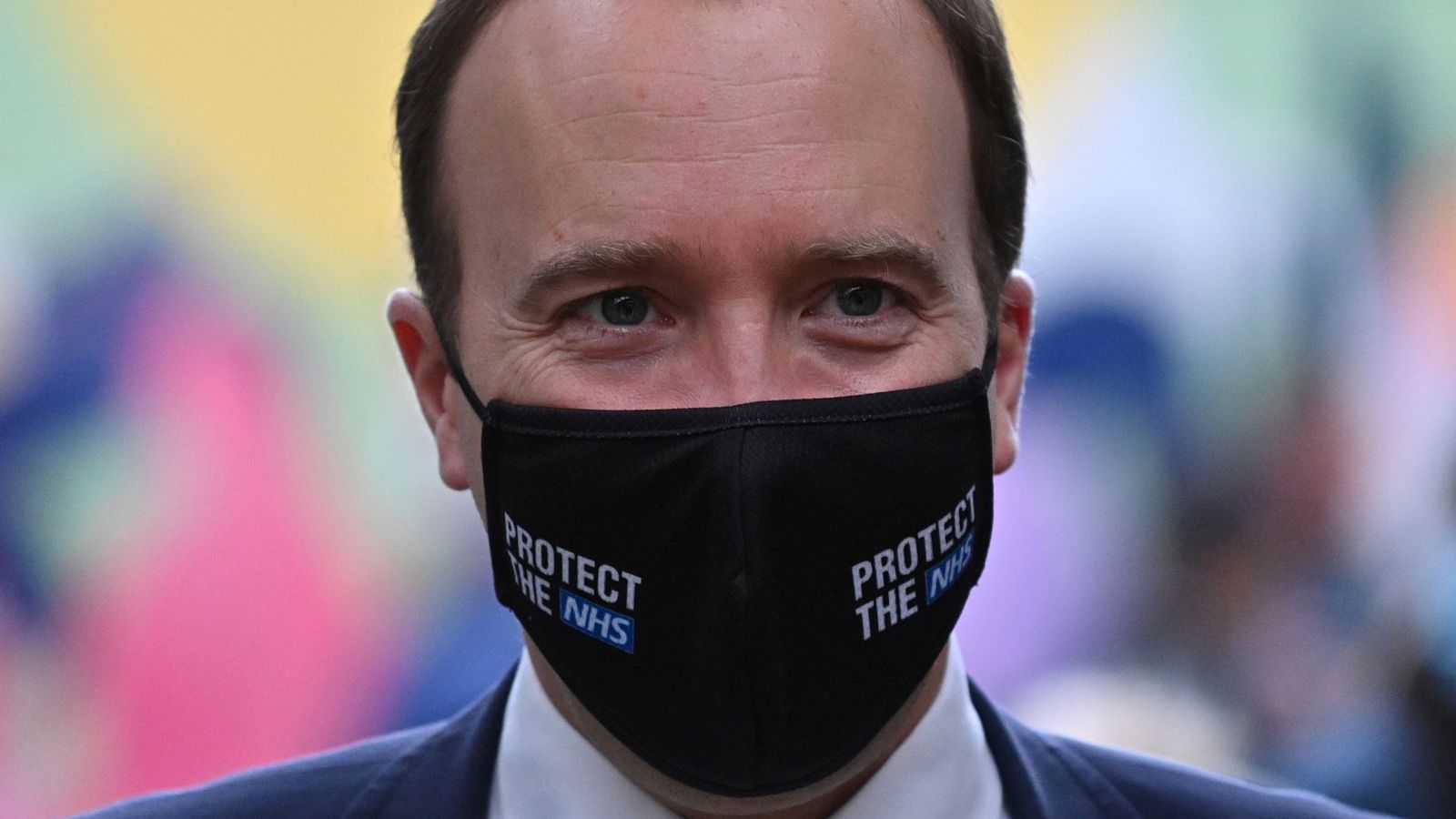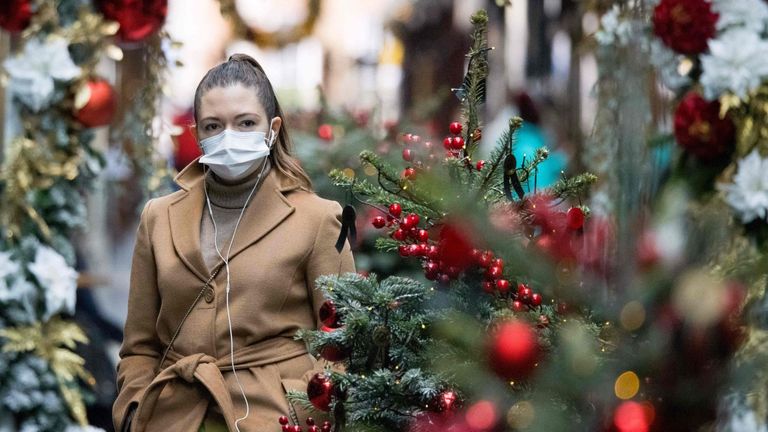The toughest COVID-19 restrictions imposed before England’s second lockdown were not strong enough, the health secretary has told MPs.
Matt Hancock said the beefed-up coronavirus tiers unveiled by Boris Johnson are “better-calibrated” than what was in place before the shutdown.
Live updates on coronavirus from UK and around world
He told a joint session of the health and social care and science and technology committees that the original Tier 3 measures in place in September and October were not “strong enough to get the R (the average number of people an infected person goes on to infect) below one, and therefore cases falling”.
“Therefore, we need a slightly tougher third tier so we can have confidence that we can bring cases down under the tiered system,” the health secretary said.
Speaking about the hoped-for rollout of a COVID-19 vaccine in the months to come, Mr Hancock told MPs: “After Easter, we think we will be getting back to normal.”
He said there would be a shift to an emphasis on “personal responsibility” rather than social distancing restrictions once a vaccine has reached the most vulnerable.
Mr Hancock told MPs that the Joint Committee on Vaccination and Immunisation (JCVI) had recommended that once all those aged 50 and over had been vaccinated, social distancing rules that “damage” society were likely to be removed.
The health secretary also said he does not expect there to be another national lockdown.
“I very much hope not to by having a tiered system which is calibrated to be able to bring the virus under control, where that’s necessary,” the health secretary said.
Mr Hancock spoke of his hope of a cultural shift from Britons “soldiering on” and going to work even if they are sick.
He said the UK should continue to use the “global-scale diagnostics capability” which it has built during the pandemic.
“I want to have a change in the British way of doing things where ‘if in doubt, get a test’ doesn’t just refer to coronavirus but refers to any illness that you might have,” Mr Hancock said.
:: Subscribe to the Daily podcast on Apple Podcasts, Google Podcasts, Spotify, Spreaker
“Why in Britain do we think it’s acceptable to soldier on and go into work if you have flu symptoms or a runny nose, thus making your colleagues ill?
“I think that’s something that is going to have to change.
“If you have in future flu-like symptoms, you should get a test for it and find out what’s wrong with you, and if you need to stay at home to protect others, then you should stay at home.
“We are peculiarly unusual and outliers in soldiering on and still going to work, and it kind of being the culture that ‘as long as you can get out of bed you still should get into work’.
“That should change.”

